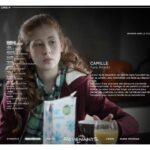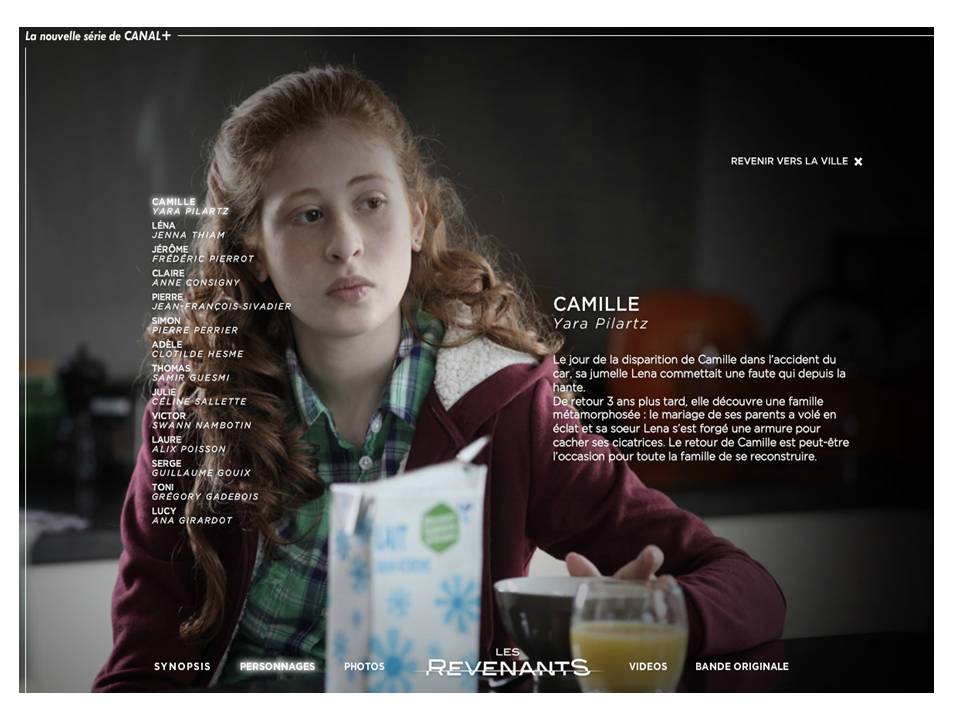I like using a variety of completely authentic materials in the classroom to show learners that the language they are acquiring is also used in the real world!
One of my sources is film trailers – or bandes-annonces. They have the advantage of being short and snappy so the viewing doesn’t take up the whole lesson, but learners still get excited at the idea of watching part of a film. We can focus on three or four lines of dialogue in order to reinforce a specific vocabulary theme or language point. Trailers are also useful to inject a dose of cultural flavour, and are a stimulating starting point for more productive work. I usually end my trailer sessions with a discussion – asking learners to share their thoughts on what they have just seen. It is then up to them to decide whether to watch the whole film or not.
Taking the idea a step further, I recently used the French website for ‘Les revenants’ as a basis for a whole lesson –  lesrevenants.canalplus.fr
lesrevenants.canalplus.fr
Just in case you missed it, ‘Les revenants’ is a 2012 French TV drama series that was originally shown on Canal + in France, and later on Channel 4. It won an Emmy Award for best drama series at the end of 2013 and a second series is in production.
When I put the website homepage on the classroom screen, all those who had seen the series were enthusiastic and able to communicate that feeling to the rest of the class. An upbeat way of starting the lesson.
The series was shot in Haute-Savoie, so we talked about the geographical features of that part of France. The key vocabulary obviously included les Alpes, la montagne, la ville, le sud-est de la France, la Suisse. The actual details can be adapted depending on the language level of learners.
To get the flavour of the series, we watched one or two of the trailers that are included on the ‘Revenants’ website. All in French, no subtitles or translations; the task was simply to watch and enjoy, and spot words or phrases learners could recognise.
We also had a look at the section on the main characters – with pictures and descriptions. This can either be used as it is with older learners or with a simplified summary for those with a more limited vocabulary.
Camille est la sœur jumelle de Léna.
Jérôme est le père de Camille, etc.
The most exciting part is probably the 360° view of the town centre; depending on where you click, different characters appear and lead to snippets of dialogues. As an example, here are the lines relating to young Victor:
Tu es perdu ?
Tu ne sais pas rentrer chez toi ?
Tu t’appelles comment ?
We then had a class discussion about the series.
Vous avez regardé cette série ? Ça vous a plu ?
Vous aimeriez regarder la prochaine série? Pourquoi?
Finally, learners were asked to work in small groups and plan a new TV series (while listening to extracts from the ‘Revenants’ music track – by Mogwai – also available on the website).
C’est quel genre de série ? Décidez d’un titre.
Quelle est l’histoire ? Ça se passe où ?
Qui sont les personnages principaux? Ils s’appellent comment ?
Even if of some of the discussions were in English, learners made notes in French because they knew that each group would later have to present their synopsis to the rest of the class, and they were all keen to come up with good original and well expressed ideas; they obviously enjoyed the work.
I often envy my ELT colleagues, feeling they have access to a much wider range of authentic sources to appeal to teenage learners, but I know that while discovering a few more facts about France and practising a good range of language skills, my class enjoyed that ‘revenants’ lesson.
Marie-Thérèse Bougard



